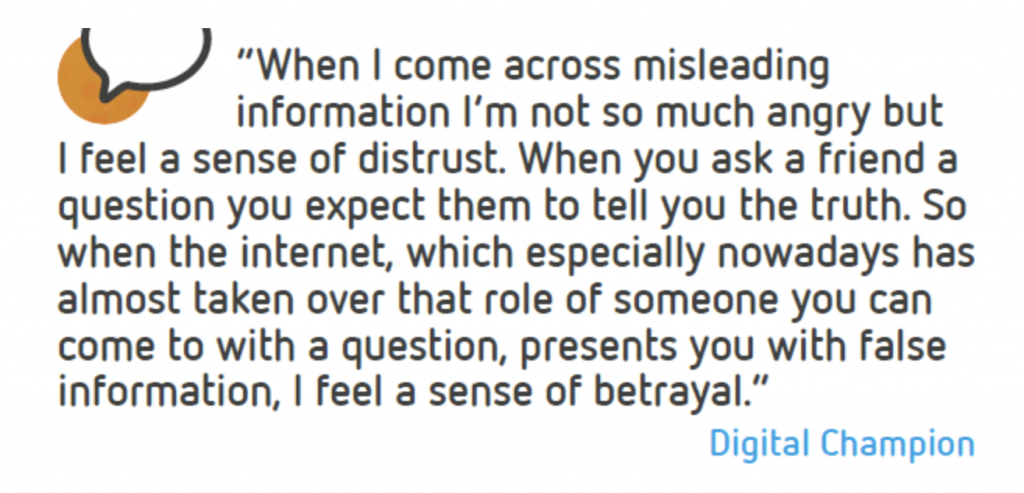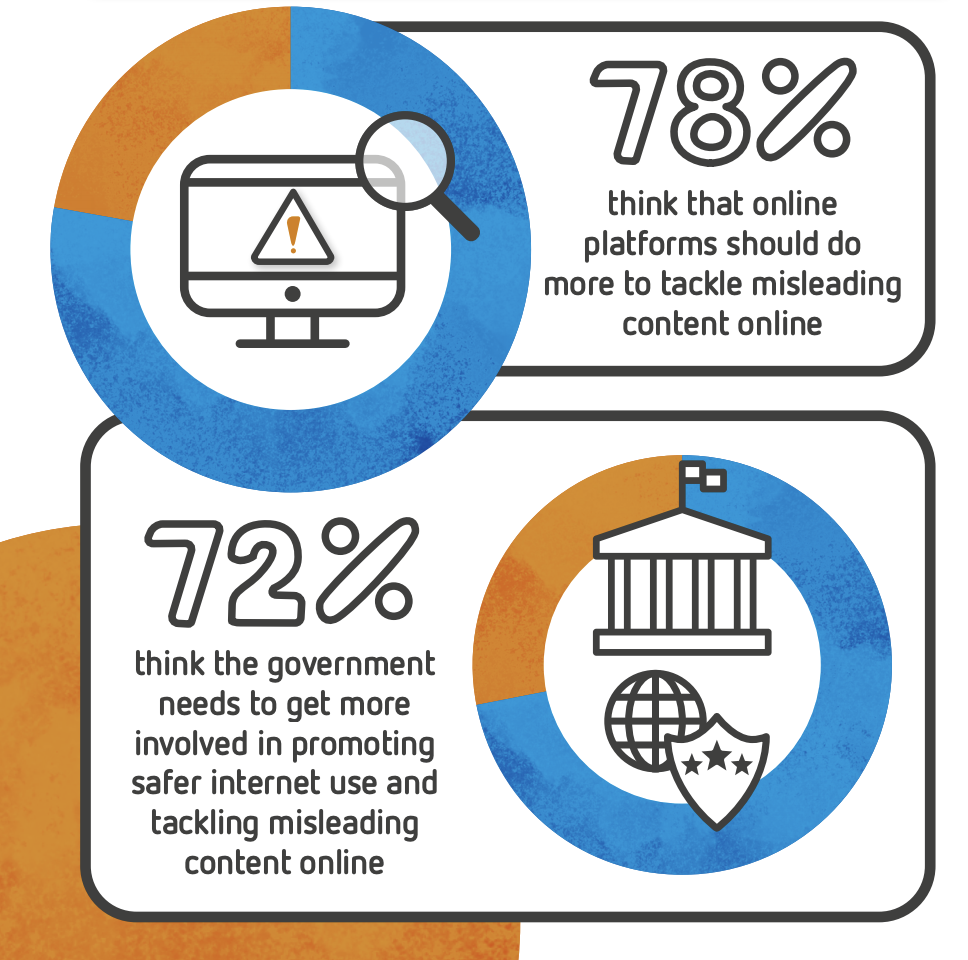A new report out today, for Safer Internet Day, finds that 48% of 8-17 years olds see untrue or misleading content at least once a day online, with more than one in ten young people saying they see it more than six times every day. 51% of the young people surveyed for the report agree that they are now seeing more misleading information online than they did before 2020
With its theme for 2021 ‘an internet we trust‘, how can we make sure the internet is a safe and reliable place for children and young people?
Children know they can’t trust what they see online
According to the report, conducted in the UK in December 2020, with 2,021 parents and young people aged 8-17, (4,042 in total), children are very aware that they need to approach online content with some degree of scepticism and mistrust. 60% of those surveyed for the report say they see influencers, bloggers, celebrities or people in the public eye sharing misleading content. Worryingly, 43% of young people have noticed their friends and peers also sharing misleading content (such as fake news) online

The result is, only 25% of children say they trust online more than offline, suggesting that children are going online every day for education and entertainment knowing that the material and information they encounter there is largely unreliable.
How do children deal with false information?
Although 59% of children and young people are aware they have a responsibility to report potentially damaging, harmful or misleading content online, they are more likely to block it (21%) than report it (16%). However, 28% do say they talk to a parent or carer about it, even if they don’t act on it themselves.
25% of young people admit they themselves have been guilty of sharing online content from an unverified or untrustworthy source. When asked why, 16% said they did it ‘just for fun’ e.g. as a joke or without being aware of how misleading or ‘fake’ the content was.
53% of young people feel they have a responsibility to educate their friends and family about sharing misleading content online, and ‘call them out’ as and when they share it. Some young people have actually done this with 17% saying they have noticed a friend sharing misleading content and spoken to them about it and 6% also having done the same with a family member.
Young people want tech companies and governments to act

Young people show consistently high levels of concern over potentially harmful misleading content. They want to be better equipped to navigate the online space reliably, with 61% wanting to learn more about how to spot misleading content online. As well as taking responsibility themselves, young people are clear in their demands for government and online platforms to do more. 78% say that online platforms should do more to tackle misleading content online and 72% say the government should get more involved in tackling false and fake online information.
In the meantime children need to be better equipped to spot the tell-tale signs of fake and false news and learn how to identify reliable sources online. Many schools and parents now tackle this as part of internet safety programmes, but for those not addressing this aspect of online use, highlighted on Safer Internet Day, the message is clear – children want us to act.

